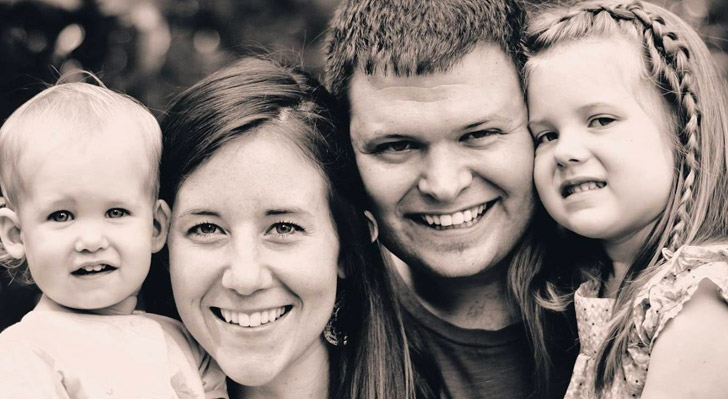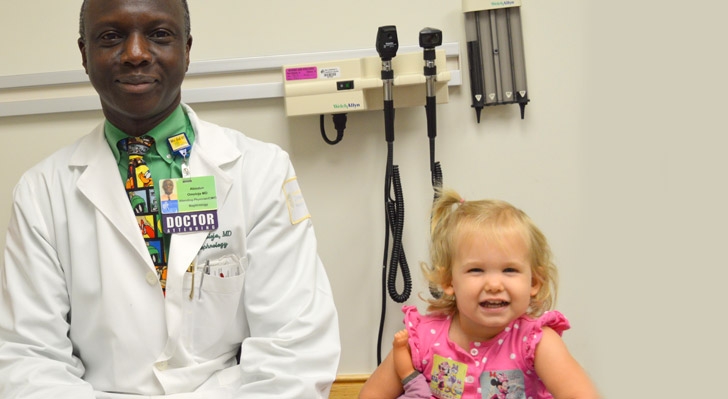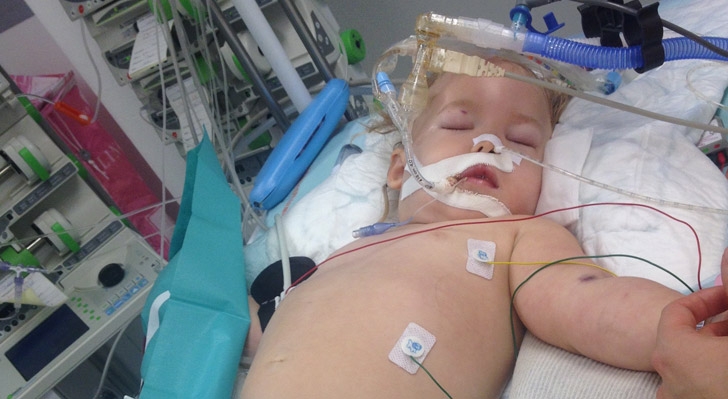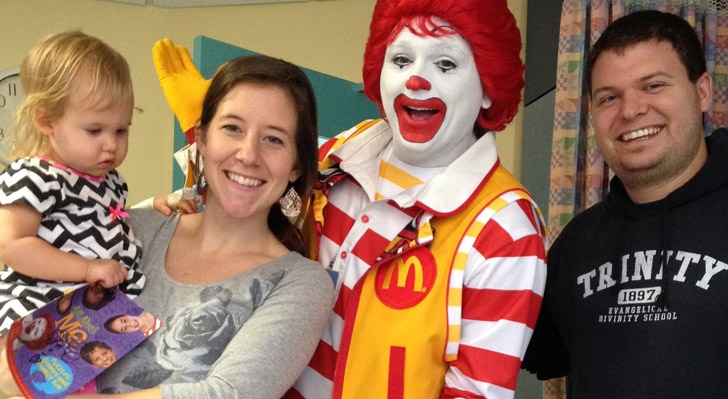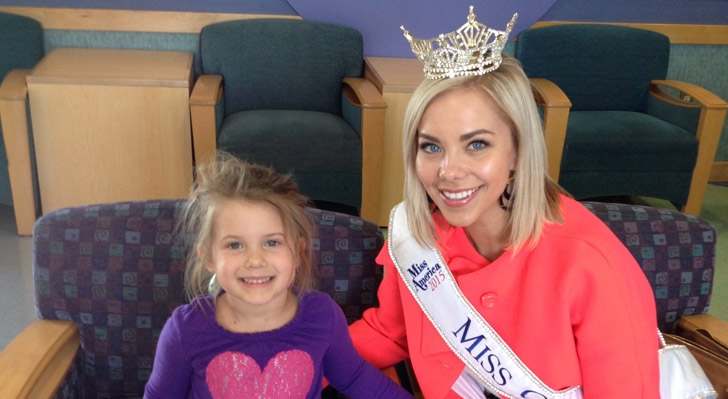Jul 06, 2016
patient story
Colette Dodson
patient travels from Africa for the right care at Dayton Children's
"Coming to Dayton Children's after spending time in hospitals in Africa was like walking into Disney World," Justin shared. "The amenities here go above and beyond, and the staff was willing to do anything to help our family."
There is nothing more important to a parent than the health of their child. Imagine living in Africa where the nearest hospital is hours away and you have a sick baby. Not just "sick," but deathly ill.
This was the scenario of Jenna and Justin Dodson and their daughter Colette, age 2. The Dodson family was living in the Ivory Coast in Africa when their daughter Colette started vomiting and having diarrhea.
"Living in Africa, these symptoms were fairly common among our entire family because of the living conditions," shared Justin. But Colette's illness seemed to be lasting longer than normal.
They took her to a local clinic where she tested negative for amoebas and malaria; they were given medication for a possible infection (due to a high white blood cell count) and sent home.
That evening, when Colette woke from a nap having seizures, the Dodsons knew she needed medical care. "We were over an hour from a hospital, and more than nine hours from a legitimate hospital," explains Justin.
The family packed up and went to the nearest missionary hospital where Colette was stabilized. It was a few days into their stay that Jenna realized Colette was not urinating. The next step was a longer flight to a better hospital in the capital of Abidjan, where dialysis machines were available if needed.
"There were no lights on the air strip; we took a bush plane, which was terrifying," says Justin.
As missionaries, the Dodsons had evacuation insurance.
"The goal was to get Colette to the best health care in a location that was as close as possible to where our family was located in the Ivory Coast," says Justin. "Since we spoke French, we wanted Paris. We were fortunate because their medical team was the first available to fly us to France."
Within two hours of landing and arriving to the hospital in Paris, Colette was diagnosed with hemolytic uremic syndrome (HUS). HUS is a kidney condition that happens when red blood cells are destroyed and block the kidney's filtering system.
Red blood cells contain hemoglobin—an iron-rich protein that gives blood its red color and carries oxygen from the lungs to all parts of the body.
When the kidneys and glomeruli—the tiny units within the kidneys where blood is filtered—become clogged with the damaged red blood cells, they are unable to do their job. If the kidneys stop functioning, a child can develop acute kidney injury—the sudden and temporary loss of kidney function.
The Dodsons were told Margaret most likely had HUS as a result of contracting the E. coli bacteria. E.coli breaks down into toxins, attacking red blood cells and platelets, blocking Colette's kidneys.
There was a chance the virus could have attacked her brain.
"Doctors at first didn't know if Colette's brain had been impacted and weren't sure of her survival rate," says Justin. The family waited - and prayed.
A few days later, Colette had an MRI which revealed her brain was perfect; there was no damage as a result.
"Doctors were baffled, they couldn’t believe that her brain wasn't injured because of how sick she was," he shared. Colette was put on dialysis for 10 days in Paris.
The next four weeks were a slow and steady climb uphill. She started eating on her own, tubes started to slowly disappear and she began walking and talking again. The family knew they wanted to get Colette back to the states for the long-term, follow-up of HUS.
Justin and Jenna, who were both graduates of Cedarville University, reached out to Jenna's former nursing instructor, Denise Martin, discharge planning coordinator at Dayton Children's.
"Since we're from the area, Jenna asked Denise for a recommendation for the very best nephrologist in the area, and she recommend Abi Omoloja," he explained. "We started asking around and it seemed like everyone we asked from this area recommended Dr. Omoloja."
The Dodsons, with the help of Denise, reached out to their evacuation insurance company again and made plans to return to Dayton. The family flew from Paris to Dayton with the help of a nurse, and arrived to the emergency room at Dayton Children's where Dr. Omoloja was waiting for them.
"Coming to Dayton Children's after spending time in hospitals in Africa was like walking into Disney World," Justin shared. "The amenities here go above and beyond, and the staff was willing to do anything to help our family.
"After Colette was discharged, they had weekly, then biweekly, then monthly visits with Dr. Omoloja to monitor the progress of her kidneys. Today, Colette has 60 percent kidney function and continues to progress.
"Eventually we'll try to go back oversees as missionaries," shares Justin. "But the warmth, hope and compassion we felt from Denise, Dr. Omoloja and the entire staff will never be forgotten."

